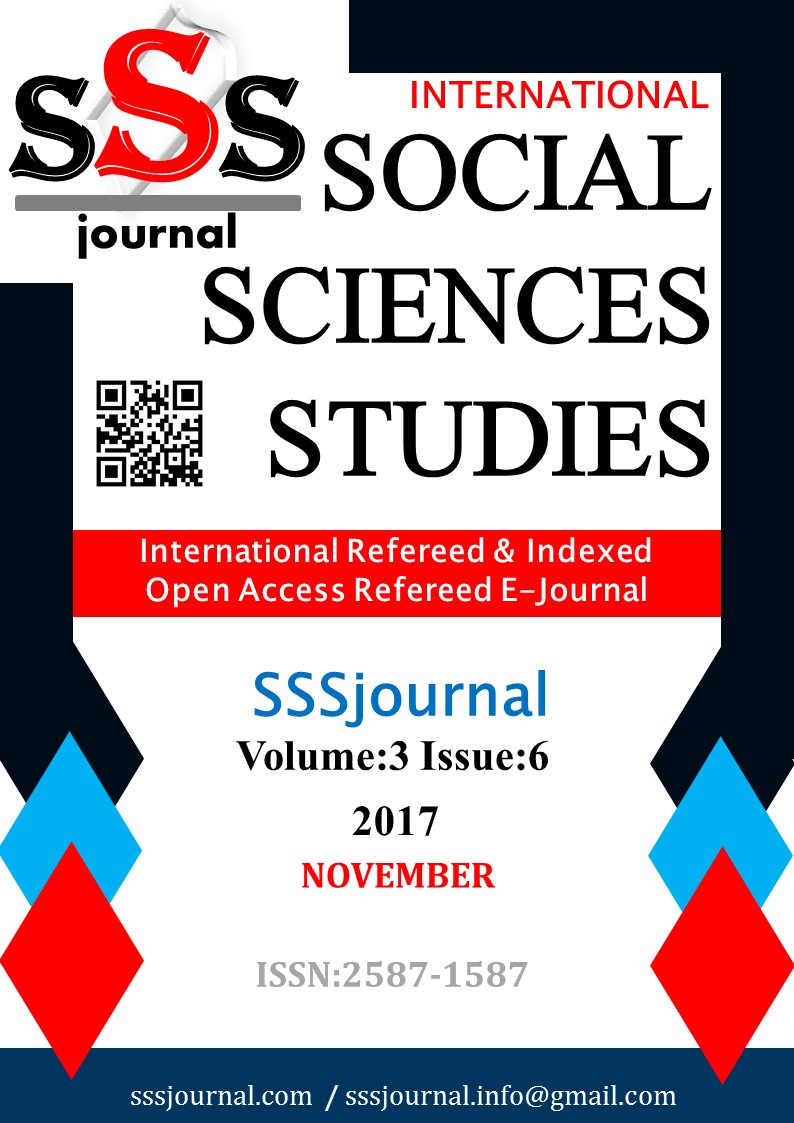Author :
Abstract
Dünya ticaretinde neo-liberal politikaların yaygın olarak kullanılması ülkeler ve bölgeler arasındaki ekonomik-sosyal sınırların ortadan kaldırılarak ülkelerarası entegrasyonların oluşmasına sebep olmuştur. Dünya ticaretinde bu hızlı değişim ülkelerin ekonomik, sosyal ve politik uygulamalarında değişikliğe gitmesine yol açarak yeni uygulamaların ortaya çıkmasına neden olmuştur. Dış ticaretin serbestleştirilerek neo-liberal politikalara uyum sağlanması amacıyla ülkemize sınırı bulunan seçilmiş ülkeler ile bölgesel ticaretin hızlandırılması hedeflenmiş olup ülkemize sınırı bulanan ülkelerle ekonomik işbirliği ve tercihli ticaret anlaşmaları yoluna gidilmiştir. Bu amaçla 79 sınır kapımızda bölgesel ekonomiyi geliştirmek, bölge insanı için gerekli temel gereksinimlerin karşılanması, sınır illerle ticaretin canlandırılarak bölge insanının refah seviyesini yükseltmek amacı ile sınır ticareti uygulamaya konulmuştur. Bu çalışmanın amacı, ülkemizde 1978 yılında yürürlüğe giren ekonomik işbirliği ve tercihli ticaret anlaşmaları sonrası ortaya çıkan sınır ticaretlerinin gelişimi, içsel ve dışsal etkileri, bölge ekonomilerle etkileşimi ile bölgesel kalkınma üzerindeki etkilerinin incelenmesidir.
Keywords
Abstract
The widespread use of neo-liberal policies in world trade has resulted in the elimination of economic and social boundaries between countries and territories, resulting in the formation of interstate integration. This rapid change in world trade has led to changes in the economic, social and political practices of countries, resulting in the emergence of new practices. In order to liberalize foreign trade and adapt to neo-liberal politics, it has been aimed to accelerate regional trade with selected countries with borders to my country and economic co-operation and preferential trade agreements have been made with the countries that have reached the border with my country. To this end, our border crossings have been implemented with the aim of improving the regional economy, meeting the basic needs of the people of the region, raising the welfare level of the people of the region and reviving the border trade. The aim of this study is to examine the development of border trade that emerged after the economic cooperation and preferential trade agreements entered into force in 1978 in our country, the internal and external effects of border trade, the interaction with regional economies and the effects on regional development
Keywords
- Dinler Z. (2014). Mikro Ekonomi, Ekin Yayınları, Bursa
- Dinler Z. (2014). Mikro Ekonomi, Ekin Yayınları, Bursa
- Ertürk, E. (1993). Ekonomik Entegrasyon Teorisi Ve Türkiye’nin İçinde Bulunduğu Entegrasyonlar, Ezgi Kitabevi Yayınları, Bursa,
- Germir H. N. & Korkmaz M. & Yücel A. S. & Aytaç A. & Şahbudak E. & Şen E. & Yorulmaz M. (2016).“An Analysis of the Foreign Trade and the Factors Affecting Trade”, International Peer-Reviewed Journal of Humanitiesand Academic Sciences (15), (128-147).
- İşsever, Ö. (1993).“Sınır ve Kıyı Ticareti Üzerine bir Değerlendirme”, Gümrük Dergisi, Sayı 6, Eylül.Kuşoğlu İ. (1994). “Türkiye’de Sınır ve Kıyı Ticareti Uygulaması”, Gümrük Dergisi, 3(8):31-39
- Mercan A. N. (2011). “Sınır Ticaretinin Geliştirilmesi ve Sınırların Serbest Yerler Haline Dönüştürülmesi”, Mevzuat Dergisi, 14 (158): 1-16
- Orhan O. Z. (2000). “Sınır Ticaretinin Türkiye Ekonomisine Etkileri”, İTO Yayınları : 2000-27, İstanbul Orhan O. Z. (2010). Genel Ekonomi, Umuttepe Yayınları, Kocaeli
- Özçiloğlu M. & Sakar M.M. (2011). “Sınır Ticareti Uygulaması Sorunlar Ve Çözüm Önerileri”, Girişimcilik ve Kalkınma Dergisi, 6(1):21-43
- Öztürk N. (2006). “Türkiye’de Sınır Ticaretinin Gelişimi, Ekonomik Etkileri, Karşılaşılan Sorunlar Ve Çözüm Önerileri”, ZKÜ Sosyal Bilimler Dergisi, 2(3):107-127
- Sınır Ticareti Raporu. (2012). “Van Ve Hakkari İlleri”, Doğu Anadolu Kalkınma Ajansı, www.daka.org.tr, Mayıs 2015
- Sugözü İ.H. & Atay M. (2010). “Sınır Ticaretinin Bölge Ekonomisi Üzerindeki Etkileri Kapsamında Habur Sınır Kapısı”, Şırnak Üniversitesi.İ.İ.B.F, 1045-1054.
- Şen, E. (2017). “Kurumsallaşma ve Kurumsal Yönetişim”, Beta Yayıncılık, İstanbul
- Tan M. & Altundal F. (2008). “Türkiye’de Sınır Ticaretinin Gelişimi Ve Mevcut Durumu”, İTO- Yayın No:2008-26





